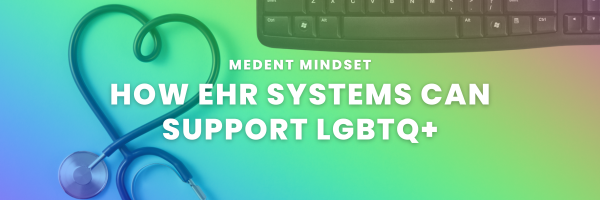June 2, 2023
LGBTQ+ in America
adults in the U.S. who identify as LGBT
Source: CDC National Health Interview Survey, 2019
While the exact number of individuals who identify as LGBTQ+ in America can be challenging to determine–due to factors such as varying definitions, self-identification and potential underreporting or social stigma–studies estimate at least 14 million adults in the U.S. identify as lesbian, gay, bisexual or transgender.
According to Gallup’s LGBT Annual Identification Poll conducted in 2020, 5.6 percent of adults in the U.S. identified as LGBT. That translates to roughly 18 million adults. Meanwhile, the National Health Interview Survey (NHIS)–a large-scale survey conducted by the U.S. Centers for Disease Control and Prevention (CDC)–reported that 4.5 percent of adults identified as LBGT in 2019.
The LGBTQ+ community faces unique healthcare challenges and disparities, making it crucial to prioritize LGBTQ+ inclusivity and support within the healthcare system. Some key reasons why LGBTQ+ inclusion is so important in healthcare include:
Health Disparities
LGBTQ+ individuals often experience health disparities, including higher rates of mental health issues, substance abuse, suicide, and certain chronic conditions. Recognizing and addressing these disparities is essential for promoting equitable health outcomes.
Trust and Disclosure
LGBTQ+ individuals may face concerns about disclosing their sexual orientation or gender identity due to fear of discrimination or bias. Inclusive healthcare environments that prioritize confidentiality, respect, and non-judgmental care can build trust and encourage open and honest communication. This enables patients to disclose vital information and seek appropriate care.
Gender-Affirming Care
Transgender and gender-nonconforming individuals may seek gender-affirming care, including hormone therapy or gender-affirming surgeries. Inclusive healthcare environments provide access to knowledgeable healthcare providers who can offer appropriate services, information, and support throughout the transition process.
Culturally Competent Care
LGBTQ+ individuals have specific healthcare needs related to sexual orientation, gender identity, and gender-affirming care. Healthcare providers need to be knowledgeable, sensitive, and culturally competent to provide appropriate care and support to LGBTQ+ patients.
Mental Health and Well-Being
LGBTQ+ individuals often face higher rates of mental health challenges, including depression, anxiety, and suicidal ideation. Access to affirming mental health services and support networks is critical for promoting their well-being and reducing mental health disparities.
Preventive Care and Screening
LGBTQ+ individuals may have unique healthcare needs related to sexual health, including HIV/STI prevention and screening. Providing inclusive and comprehensive sexual health education, access to preventive measures, and routine screenings can significantly improve overall health outcomes within the LGBTQ+ community.
Advocacy and Policy Changes
Inclusive healthcare practices and policies contribute to broader advocacy efforts for LGBTQ+ rights and social equality. By prioritizing LGBTQ+ inclusivity in healthcare, the healthcare system can be a powerful ally in advancing societal acceptance and reducing stigma and discrimination.
The role EHR systems can play in LGBTQ+
Electronic Health Record (EHR) systems can help to ensure LGBTQ+ individuals’ healthcare needs are met in a respectful, inclusive and sensitive manner. To effectively support LGBTQ+ individuals, an EHR system should include the following features and functionalities:


Comments are closed